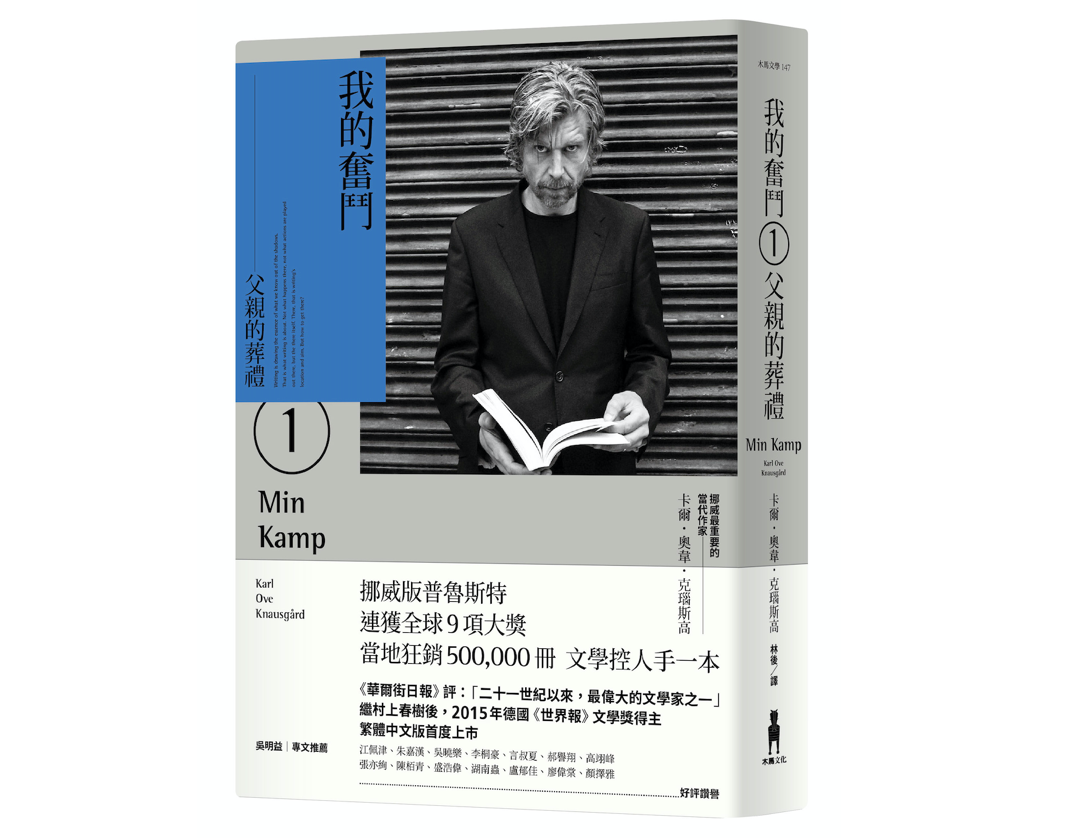[Trial Reading Experience] Karl Ovey's Mein Kampf: Father's Funeral: Writing is a struggle with memories in the shadows

Mein Kampf: My Father's Funeral is the first in a series of autobiographical novels by Norwegian author Karl Ove Knausgård published in 2009. The theme is death. In the next two years, he successively published the remaining five works, all of which were titled "Mein Kampf", writing about love, childhood, work, dreams and thinking in his life, and won the highest ranking in Norwegian literary circles. Honorary Prague Literary Prize. In 2015, he won the German "Welt" Literature Prize.
Karl Ove, known as the "Norwegian Proust", is not as cumbersome, detailed and gorgeous as Proust in his writing, but he is still very delicate and worthy of slow chewing. At the same time, although this work is reminiscent of a memoir novel similar to "Reminiscence of Time Is Like Water", for the author, the first thing that catches my eye, in addition to the theme of memory, is more important. Mein Kampf" means in these works.
"Writing is bringing out the spirit of everything we know in the shadows."
In this work, "shadow" refers not only to the death of his father, but also to various unpleasant pasts with his father during his lifetime. In the book, Carl Ovey writes that while his father took his job seriously, he didn't take his family seriously. In addition to often ignoring relatives at home, drinking and smoking alone all day long, and even violently treating his mother and his sons. After the sons grew up and became a family, of course, they rarely saw each other. So Carl, who heard the death of his father. Ovey, at the moment, even stated that he "didn't feel anything".
Although it was obvious that "I didn't feel anything", in the following days, all kinds of memories that were forgotten before suddenly flashed and appeared in my mind in various ways and opportunities, leaving deep emotions. Like waves or the lifting of a veil, it stirs up one's own emotions layer by layer. Finally, in these "all irregularities and all ambiguities," the pain of being torn apart by death is felt.
How could I forget that I had such an experience with my father in the past? Are we all so overwhelmed by hatred and anger that we have forgotten some pasts that are so important to each other and should not be forgotten?
This feeling is probably the reason why Carl Ovey began to want to write this series of novels? Some things, if not through writing, may never have a chance to remember. It will only continue to hide in the shadows of the past, and it will be difficult to rediscover and gain reflection. This is also the meaning behind writing as a struggle. With sometimes straightforward and sometimes delicate descriptions, people face the entanglement between themselves and each other.
(This article is made for participating in the Trojan horse culture trial reading activity, welcome to share.)
Blog to link: https://pse.is/3blsnn
(This article is simultaneously published on the square grid blog: Literature Lab )
FB Fan: https://pse.is/TCBRA
IG account: https://www.instagram.com/bungoussteins/
Like my work? Don't forget to support and clap, let me know that you are with me on the road of creation. Keep this enthusiasm together!

- Author
- More